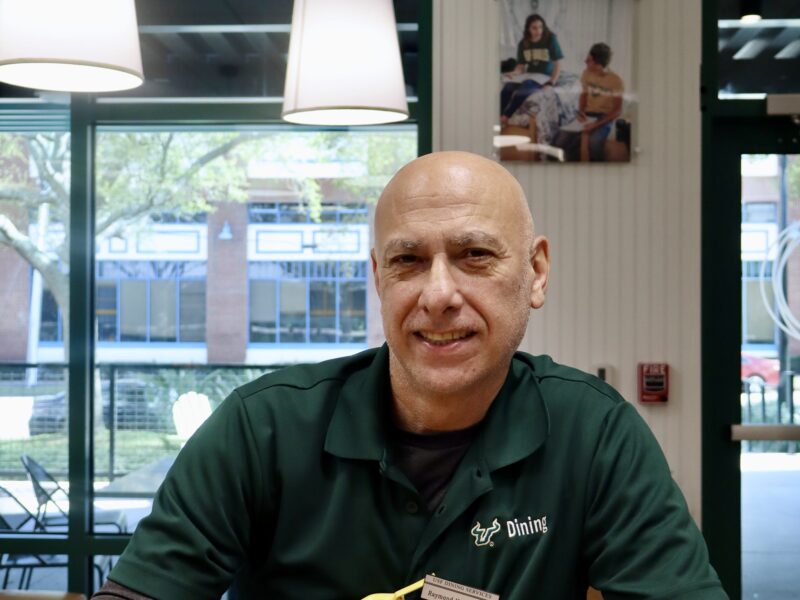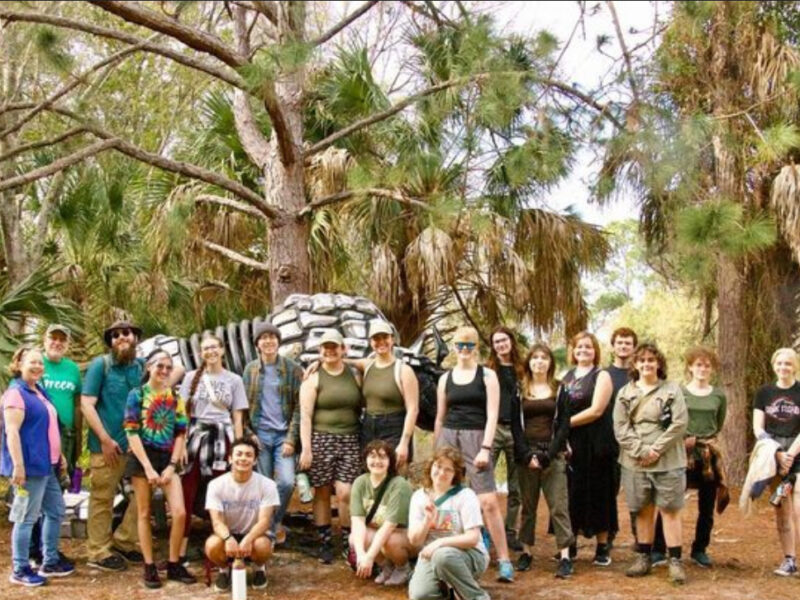
By Dylan Hart
Antonia Robinson and Zachary Hyder want to “provide student success from A to Z.”
Hyder, Compass’ first- and second-year student success advocate, and Robinson, who helps third- and fourth-year students, started on campus Jan. 26.
Student success advocates are a new part of Compass, which changed its mission in October from serving exclusively first-year students to helping students at all levels.
Compass is the university’s campus-wide initiative to provide resources and outreach to students in need. It uses a combination of student peer coaches and professional staff, like Hyder and Robinson, to achieve its goals.
The advocates’ job is to act as a contact point between struggling students and resources that can help them. Their help is not strictly academic, and the advocates indicate that they can help point students in the right direction for anything.
“We’re not just here for one reason, we’re here for a lot of different reasons,” Hyder said. “Students should know they can come here for holistic support – if only one part of their life feels off but it’s impacting the rest of their life, we want to know about that and we want to be helpful.”
Their positions are another part of the university’s plan to keep retention rates up.
Growing up and attending college, neither Robinson nor Hyder expected to end up working in education.
Robinson, who grew up in Jacksonville, earned a degree in journalism from the University of Florida.
“I have always loved to write,” Robinson said. “In fourth grade, I won an essay contest about what I would be and why, and I said clown –– because I loved to make people smile,” something apparent in her energy and enthusiasm.
She worked as a print reporter for several years, first interning at the Gainesville Sun before moving on to work at the Hartwell Sun in Georgia and the Lake City Reporter in Florida. Her focus was city government.
She said that while she loved journalism, she sought a career change “because reporters are underpaid and overworked.”
In 2011, an editor at the Lake City Reporter pointed her to a position at Florida Gateway College in Lake City, where she would facilitate a statewide high school-to-college mentorship process. She took the job and worked in that position until moving to USF St. Petersburg.
She said that she loved helping the students develop and was drawn to education when she covered it as a reporter. She received a master’s degree in higher education from the University of North Florida in 2017.
“I wanted to make a greater impact beyond writing stuff,” she said. “I wanted to actively be involved.”
Hyder grew up in a small town in Tennessee. He went to the University of Tennessee, Knoxville, for his undergraduate degree. Initially, Hyder was pursuing a biochemistry degree with the intention of attending medical school.
“Getting a medical degree is apparently the only way 18-to 20-year-olds think they can help people,” Hyder said.
But since he didn’t enjoy biochemistry, he soon realized that there are more ways to help people. He moved to higher education as his next venture and received a master’s degree in college student affairs from the University of Maryland, College Park.
Hyder worked at USF Tampa as a residence life coordinator from July 2017 until he took the student success advocate position at USF St. Petersburg. While he enjoyed his work as a residence life coordinator, he felt that he wasn’t able to focus on students as much as he liked.
Robinson said that she likes the small college atmosphere of USF St. Petersburg based on her time working at small-town newspapers and Florida Gateway College.
“I feel like I can see my instant impact with students,” she said. “I’ll see students across the campus and strike up a conversation and know them, just like that.”
Hyder said that he loves the Tampa Bay area and that he “resonates with the university’s mission” of pushing for student success, which he says is a rare trait for a college in the U.S.
Hyder and Robinson do not have the same role as an academic advisor or the financial aid office. But they hope that through a university-wide collaboration process, they can help students with what they need.
“We help prevent run-around, where you have to go to all these kinds of offices,” Hyder said. “We may not be able to do everything, but with the goal of collaboration, we’re really hoping to be able to plug people into the right places. They’re the specialists.”
Hyder and Robinson said that since the day they’ve started, they have worked together closely. Robinson said they talk to each other “5,000 times a day,” and hopes that the transition between a second-year and third-year student will be seamless.
“At the end of the day, we’re focused on the students,” Robinson said. “We know we’re doing our job when we see you walk across the stage, but we also know we’re doing our job when we see you on campus being happy and productive.”
“We want to get you from the beginning to the end — Antonia to Zachary, A to Z.”
Students, faculty and family members can refer a student for an appointment with a student success advocate at https://bit.ly/2HdngHZ.



